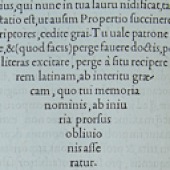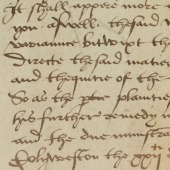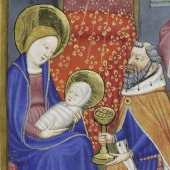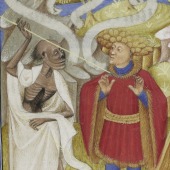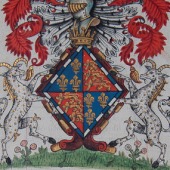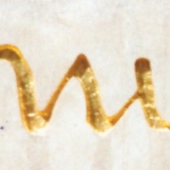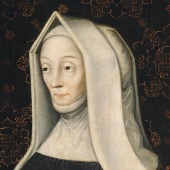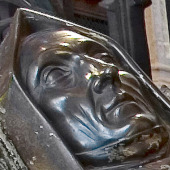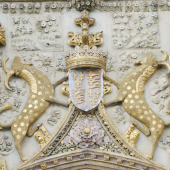Margaret Beaufort
The moving word
The mother of King Henry VII, Margaret Beaufort (Bletsoe, 1441 or 1443–Westminster Abbey, 1509) played a leading role in public and cultural life at the end of the fifteenth century. Having endowed the founding of Christ’s and St John’s Colleges, she also left in Cambridge collections several priceless historical documents.
Lady Margaret, countess of Richmond and Derby, referred to by her contemporaries as ‘my Lady the King’s Mother’, was an extraordinarily independent woman: her political awareness was a determinant in raising her son to the throne, and during his reign her financial caution and political pragmatism made her one of the most powerful figures of the Tudor regime. Patronage of academic, religious and cultural activities was an important aspect of the role she played in English society.
Lady Margaret, who regretted her own lack of education in Latin, was a book enthusiast, a passionate and critical reader, and one of the first women to show active engagement in early printing. In 1489 she commissioned William Caxton to produce an English translation and the printing of Blanchardin et Eglantine, a thirteenth-century prose romance, a manuscript copy of which she had purchased from Caxton himself. In his prologue to the romance, Caxton says that Lady Margaret considered this romantic and chivalric tale appropriate reading for young women. Later, in 1503 and 1506, Lady Margaret demonstrated her continuing interest in English printing with the commissioning of two French translations of devotional works, Book four of the The imytacyon and folowynge the blessed lyfe of our sauyour Cryste by Thomas à Kempis and the The mirroure of golde for the synfull soule.
Image used by permission of the Master and Fellows of St John’s College, Cambridge.
